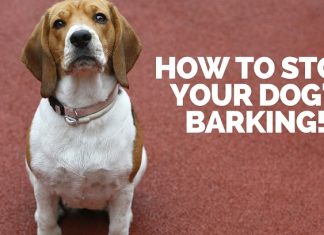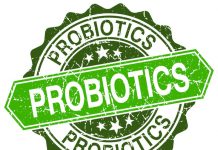Welcoming a new puppy into your home is an exciting and joyful experience, filled with playful antics and boundless affection. As a responsible pet owner, ensuring your furry friend’s health and well-being is a top priority, and one of the most crucial steps in this journey is understanding their vaccination schedule. Just like human babies, puppies are vulnerable to a range of diseases that can be easily prevented with the right vaccinations. In this article, we’ll guide you through the essential puppy vaccination schedule, offering you the knowledge and confidence needed to protect your new companion. With our warm and instructive approach, we’ll help you navigate each step of the process, ensuring your puppy’s journey to a healthy adulthood is as smooth and safe as possible.
Understanding Core Vaccinations for Your Puppy
Core vaccinations are essential to safeguard your puppy’s health against serious diseases. These vaccines are considered crucial because they protect against illnesses that are highly contagious and potentially life-threatening. As a responsible pet parent, it’s important to familiarize yourself with these core vaccines to ensure your puppy grows up strong and healthy.
- Canine Parvovirus: A highly contagious virus that affects the gastrointestinal tract, causing severe vomiting and diarrhea. Puppies are particularly vulnerable, making early vaccination critical.
- Canine Distemper: This virus attacks the respiratory, gastrointestinal, and nervous systems. Vaccination is vital as the disease is often fatal.
- Canine Adenovirus: Known for causing hepatitis, this virus can lead to severe liver damage. Vaccinating your puppy helps prevent the spread of this disease.
- Rabies: A fatal virus that affects the central nervous system. It’s not only essential for your puppy’s health but also required by law in many regions.
Ensuring your puppy receives these core vaccinations on schedule is one of the most important steps you can take to protect their well-being. Consult your veterinarian to create a tailored vaccination plan that fits your puppy’s specific needs and lifestyle.
Timing is Everything: Creating a Vaccination Timeline
As a loving pet owner, crafting a well-structured vaccination timeline for your puppy is one of the most important steps you can take to ensure their long-term health. Puppies are born with some natural immunity, but this wanes over time, making timely vaccinations essential. The first few months are crucial, as they lay the foundation for a lifetime of protection against diseases. Here’s a suggested schedule to guide you:
- 6-8 weeks: The journey begins with the first round of vaccinations, typically including Distemper, Parvovirus, and Hepatitis. This initial step helps fortify your puppy’s immune system.
- 10-12 weeks: Follow up with a booster of the same vaccines, while adding Parainfluenza and Bordetella if recommended by your vet, especially if your pup will be socializing with other dogs.
- 14-16 weeks: The final core vaccinations, including a Rabies shot, are crucial at this stage. Some vets might also recommend a Leptospirosis vaccine depending on regional risks.
Creating a vaccination timeline that aligns with your puppy’s specific needs, and maintaining it, ensures they grow into healthy adults. Always consult your veterinarian to tailor the schedule according to your puppy’s lifestyle and environment.

Preparing for the Vet Visit: What to Expect and Bring
Taking your puppy to the vet for vaccinations can feel like a daunting task, especially if it’s your first time. To make the experience smoother, it’s essential to be well-prepared and know what to expect. Start by scheduling your appointment in advance and arrive a few minutes early to complete any necessary paperwork. During the visit, the vet will conduct a thorough health check to ensure your pup is fit for vaccinations. Expect questions about your puppy’s diet, behavior, and any health concerns you might have noticed. This is the perfect opportunity to ask your vet any questions you have about your puppy’s health and vaccination schedule.
Here’s a quick checklist of what to bring with you to the appointment:
- Medical Records: If this isn’t your first visit, bring any previous vaccination records or health documents.
- Favorite Toy or Blanket: A familiar item can provide comfort and help reduce anxiety for your puppy.
- Treats: Bring some treats to reward your puppy for good behavior during the visit.
- Leash and Collar: Ensure your puppy is safely secured while entering and exiting the clinic.
Being prepared not only helps in keeping the visit stress-free but also ensures your puppy’s vaccination process goes smoothly. Remember, this is an essential step in safeguarding your puppy’s health and well-being.

Aftercare Tips: Ensuring Comfort and Health Post-Vaccination
Once your puppy has received their vaccinations, it’s important to ensure they remain comfortable and healthy as they adjust. Here are some aftercare tips to keep in mind:
- Monitor for Reactions: It’s normal for puppies to experience mild reactions such as slight swelling at the injection site, mild fever, or temporary lethargy. However, if you notice severe symptoms like persistent vomiting, difficulty breathing, or swelling of the face, contact your veterinarian immediately.
- Provide a Cozy Environment: After a vaccination, your puppy may feel a bit under the weather. Create a quiet and comfortable space where they can rest undisturbed. A soft bed and some gentle petting can go a long way in soothing them.
- Encourage Hydration: Ensure your puppy has access to fresh water. Sometimes, vaccinations can make them a bit dehydrated, so it’s important to encourage them to drink regularly.
- Limit Strenuous Activity: For the first 24-48 hours post-vaccination, try to keep your puppy’s activities low-key. Avoid long walks or rough play to help their body recover efficiently.
By taking these simple steps, you’ll help your puppy navigate the post-vaccination period with ease, setting them on the path to a healthy and happy life.
















